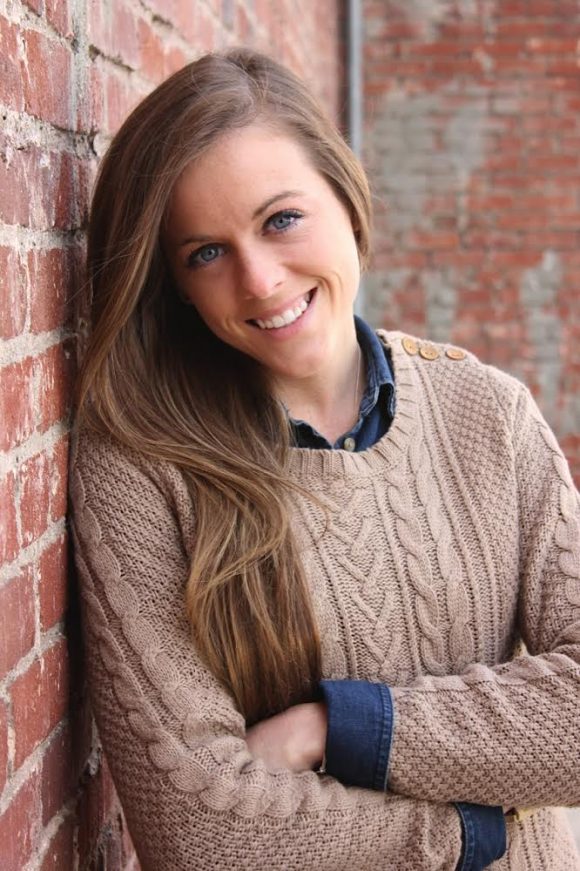Meet Tayah Wozniak- PhD Candidate 2022 Tayah Wozniak Shares her Experience in Chapman's PhD Program
October 28, 2021
 What year did you start at Chapman?
What year did you start at Chapman?
I started in Fall of 2019. I did my Master’s in public health at UCI and then spent a few years in nonprofit work before coming back to academia. So not straight from school to school, I did a bit of real world work first.
What made you return to academia?
I loved what I did as far as working with clients- I was the program manager for a couple nonprofits, and I loved working with my team of social workers and the people that relayed the services that we had. I did start to feel stagnant or stifled by the fact that I had all this information, research, and knowledge from my Master’s that wasn’t being implemented within the nonprofit world. I started thinking about going back to school to provide translational applied research to places like nonprofits, hospitals, and places like that and then came across this program that was within the realm of what I wanted to do. I came back to academia because I love research and wanted to be able to keep learning, keep growing and I felt kinda stifled in the role I was in.
What made you choose the School of Communication at Chapman University?
When I was getting my Master’s in public health, I took a health communication course that was taught by Dr. Lisa Sparks. At the time, she talked about building this PhD program and I never really thought twice about it, but when I started searching for programs, this one came up and was at the top of my list as far as what area I wanted to study, and location. Originally I heard through her, and emailed her about my interest and she then put me in touch with Dr. Kieth Weber.
What are you getting your PhD?
I am getting my PhD in Health and Strategic Communication, with an emphasis on health communication, mainly because of my background in public health. The goal is to learn everything and anything health communication related; specifically patient-provider communication and how we relay messages through campaigns and lots of other things.
What is your specific field of study?
To narrow it down, at least when it comes to my dissertation and prior research, I am focused on health misinformation. Everyone’s a little more familiar with health misinformation because of COVID and the pervasiveness of misinformation during the pandemic, but my interest precedes that. My older brother is a pediatrician and I’ve talked at length with him about the things he talks with patients about, the stuff he has to combat, and the conversations he has when it comes to dealing with health misinformation. My line of research and dissertation is coming up with specific strategies to combat health misinformation within the relationship between patients and providers. I want to know how a doctor or nurse can have a conversation with an individual and effectively change their mind, attitudes, and what they believe.
What do you plan on doing with a PhD?
I am applying for jobs as a professor. I would love to obtain a tenure track professor position somewhere. I came in thinking I would do more consultant work, but through my time at Chapman, I’ve realized I love teaching, mentoring, and working with students. So I would love a job as a professor, but also on the side, I would like to start a consultant business where I could provide research and services for nonprofits, NGO’s, hospitals, and things like that within healthcare.
What option did you choose for comps… the paper route or the test route?
I actually did the paper route, the candidacy paper rather than comprehensive exams. I specifically chose the paper route after doing an analysis of the pros and cons of paper versus comps. For me, since I didn’t come straight from my Master’s program, I came from working with nonprofits, it was important for me to build my portfolio of research. It was beneficial for me because I got my name as first author in these two pieces and helped me develop my dissertation argument further. If you have an idea that you are really passionate about, I say go after the paper route but if you are a little unsure about what you want to study or your full research plan then maybe the test route is more beneficial for you.
How did you prepare for comps?
Similar to comprehensive exams, students started studying the previous year in the summer. Instead of studying, I was putting together my proposals for my papers. I came up with my particular paper ideas in the Fall of second year of the PhD program and then solidified those during the following christmas break. I started those proposals spring of my second year and defended those May of my second year. I finished the paper during this past summer and officially became a PhD candidate this past August.
What was the process like?
For my papers I did one new data study on relational health communication competence for health care providers when it comes to talking about and combating health misinformation and then another state of the art piece holistically looking at health misinformation from a communication perspective. I was really able to refine my data analysis capabilities and research writing skills to conduct and put together two papers that I now have. One is out for review at a journal and my second paper I am just making some final edits and then I will be sending that in to a journal for review as well. Hopefully this turns into two published papers in the end.
Any advice that you have or will pass along to next years group about the comps process
Go about it as any other decision you make. You want to make sure it is the best for you in that situation and the most beneficial to getting a job, whatever that may be, whether that is in academia or corporate America. Just focus on what is best for you and your future.
Has your perspective on the process or point of comps changed now that you are on the other side?
No. Luckily, I have been super happy with my decision and it has gone really well. I am hopefully getting two published papers out of it, so for me it worked out very nicely. Not to say that the exams wouldn’t have worked out for me, but this was the most beneficial for me and where I want to take my career.
Please tell us a little bit about your dissertation.
My dissertation is a two part study based on the work I did with my candidacy papers. From those two pieces I got my dissertation topic which involves using the interpersonal theory of goals, plans, and actions. I will qualitatively explore what goes through the minds of health care providers when combating health misinformation, asking them to recall a conversation they had with a patient, and will be measuring this through open-ended survey items which will lead to a design of part two. Part two involves actually testing those messages on patients to see which ones are more effective in combating health misinformation.
How did you develop this proposal?
My interest in health misinformation led me to this but I was also guided by theory. Everything I do is guided by theories, so using communication theory to develop these strategies.
How does this relate to your broader program of research?
The ultimate goal I have with studying health misinformation is to better the lives and wellbeing of individuals. We know that communication has a receiver and a sender, so it’s two fold when it comes to tactics that you can take to approach this problem. So on one hand, I am looking at providers and how they can combat misinformation and on the other hand, I want to get the receivers of information, like you or I, to be less susceptible to health misinformation. So how can we educate and empower individuals to make educated decisions? Ultimately, all the research I do I want it to be translational, applicable, tangible in the way that it improves the wellbeing of individuals. So I am looking at health misinformation as one way to do that but the broader goal, like I said, is to use health communication to improve the health and wellbeing of individuals.
Do you foresee any hold-up in completing the Diss or do you (and your advisor) believe that you will be Dissertated by the beginning of Summer?
No, I think I am on track to finish May of 2022. I am pretty close to defending my prospectus and both parts should be pretty easy to complete, barring no complications. Otherwise, I am on track.
Any advice for any students looking into the program?
I think ultimately, it’s never too late to pursue your dream or passion. I came back from working a little bit, and for me it was more beneficial because I was able to understand the populations that I am studying more thoroughly, and can come up with research ideas through my service with nonprofits. It’s also important to know when it is a good time to return, when you have reached the limit of what you can do in certain jobs and know that it is never too late to return to education and pursue your dreams. My advice would be to talk to professors, PhD students, talk to people who have been in the program and the faculty that make this program. You can talk to them about their research, and what jobs may be available to you after getting a PhD. You can find out what this program can do for you and your career or trajectory. Figure out what you want to do, and see if a PhD will get you from point A to point B. You just have to look at what is best for you and what you want to get out of it.
Closing Thoughts
I am incredibly grateful for Chapman University. I have had nothing but wonderful experiences here and when I chose my advisor, Dr. Ball, the experience got exponentially better. It has been a really great experience of learning and growing- even through good and bad, including a pandemic, we persevered and I was able to get to where I am at now. I am also really thankful for the students at Chapman. I never thought I wanted to teach and here I am applying for professor positions because I love teaching. The students here are all incredible and such go-getters. It makes me excited for the next generation and what I can do as a professor to propel and encourage the next generation to be world changers.


